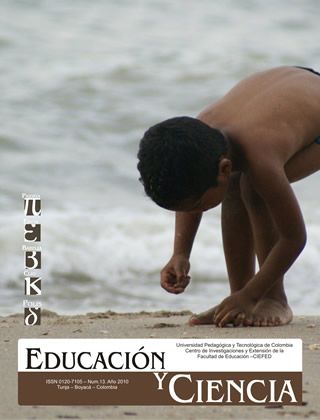El Emilio: conocimiento e instrucción

Abstract
Un hombre independiente es capaz de valerse por sí mismo, haciendo uso de sus conocimientos, un hombre libre tiene voluntad para elegir, un hombre virtuosocuenta con criterio para vivir, de ahí que sepa conducirse como un individuo en su vida privada, como un ciudadano
en su vida pública y como parte de una sociedad en su vida colectiva. Por ello, fuerza y vigor, voluntad y libertad,
sentidos y conocimientos son los elementos que le enseñarán a Emilio el oficio de vivir. En este artículo se hace una aproximación reflexiva a la noción de conocimiento y a su relación con la noción de instrucción en el Emilio, obra de filosofía y de pedagogía escrita por
Rousseau y publicada en 1762. Rousseau afirma que todos los individuos nacen capaces de aprender, pero también
nacen sin saber nada, sin embargo, en la medida en que el niño va creciendo, son las sensaciones, las necesidades
y las experiencias las que le enseñan y contribuyen a que aprenda a usar los sentidos y los conocimientos. Los
sentidos son afectados por las primeras sensaciones, consideradas materiales del conocimiento, facilitando la formación de la memoria y del entendimiento,
mientras que el movimiento conecta al niño con su cuerpo, con sus fuerzas y con su voluntad, haciendo posible que
se convierta en un individuo dueño de sí mismo. La formación de una subjetividad (modo de ser), la necesidad de un deseo de saber y el despertar de la curiosidad
por conocer son los elementos que constituyen la educación en tanto objeto de estudio de esta obra.
Palabras clave: Educación, niño, conocimiento, instrucción, sentidos, experiencia.
Abstract
An independent man is able to fend for himself, making use of his knowledge. A free man has the will to choose. A
virtuous man has the life approach. From there, he knows to behave as an individual in his private life, as a citizen
in his public life and as part of a society in his collective life. Therefore, strength and stamina, will and freedom, sense and knowledge are the elements that will
teach Emilio, the trade of living. This paper is a reflective approach on the notion of knowledge and its relation to
the notion of instruction in The Emilio, book of philosophy and pedagogy written by Rousseau, published in 1762.
Rousseau asserts that all individuals are born capable of learning but also born without knowing anything. However,
inasmuch as the child grows, the feelings, needs and experiences teach and help the child learn to use his senses and knowledge. The senses which are affected by the first sensations, are considered knowledge’s
materials, facilitating the formation of memory and understanding, while the movement connects child with his body, with his strength and his will, making it possible to become an individual owner of himself. The formation of
subjectivity (way to be), the need for a desire for knowledge and the awakening of curiosity to know, are the elements
that constitute education as this book object of study.
Key words: Education, Child, Knowledge, Instruction, Senses, Experience.
Downloads
Download data is not yet available.